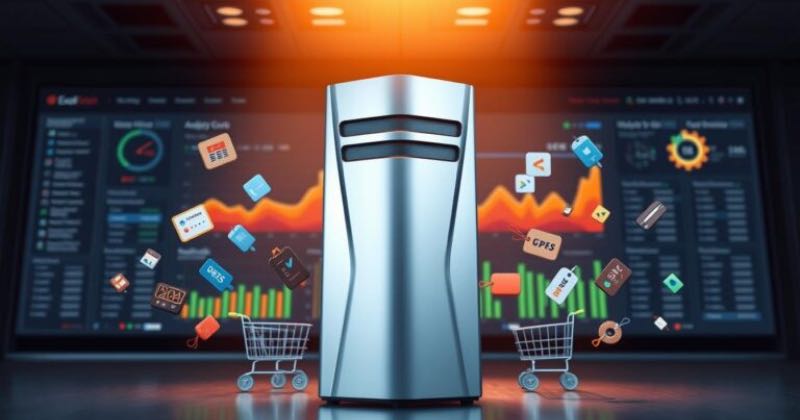Best Email Marketing Software for Ecommerce: Top Picks
Choosing the right email marketing software is crucial for ecommerce businesses that want to boost sales, engage customers, and automate communication. With so many options available, it’s essential to understand which platforms truly fit the needs of an online store and provide the right tools to grow your audience effectively.
Omnisend: Ecommerce-Focused Automation and Multichannel Messaging
Omnisend stands out as a specialized platform built specifically for ecommerce brands. It combines email marketing with SMS and push notifications, enabling sellers to engage customers across multiple channels. Its drag-and-drop editor offers a variety of templates tailored for promotions and sales, while its automation workflows cover essential scenarios like abandoned cart reminders, welcome emails, and post-purchase follow-ups. Moreover, Omnisend integrates seamlessly with popular ecommerce platforms like Shopify, WooCommerce, and Magento, simplifying campaign management.
The platform’s segmentation features allow marketers to target specific customer groups based on behavior, improving relevance and conversion rates. Pricing starts with a free tier that supports up to 250 contacts and 500 emails monthly, making it a great choice for businesses just starting out or testing automation.
Moosend: Budget-Friendly Solution with Unlimited Sending
For ecommerce stores seeking an affordable yet powerful tool, Moosend delivers strong email marketing capabilities without complex pricing models. It provides unlimited email sends in all paid plans, which is ideal for growing lists. The user interface is straightforward, allowing merchants to create campaigns and set up automation workflows such as welcome series and cart recovery with ease.
Moosend also includes detailed reporting and spam testing, which helps ensure high deliverability and campaign effectiveness. Its plans start with a free tier of 150 contacts, scaling up to paid tiers at competitive rates, making it especially attractive to startups and small businesses.
ActiveCampaign: Advanced CRM and Marketing Automation
ActiveCampaign elevates email marketing by integrating powerful CRM features and highly customizable automation. This platform suits medium to large ecommerce businesses that require precise segmentation, lead scoring, and tailored customer journeys. Its automation builder allows intricate workflows triggered by user behavior, purchase history, and engagement patterns.
Though it has a steeper learning curve, the platform’s depth provides significant control over customer communication and can help boost long-term customer value. Pricing starts at $15 per month, scaling based on features and number of contacts.
HubSpot: All-in-One Marketing and Sales Platform
HubSpot offers a comprehensive marketing suite that includes email automation, CRM, and AI-driven analytics. While it’s pricier than many alternatives, HubSpot excels for businesses wanting to centralize marketing, sales, and customer service in a single platform. Its email builder supports personalized campaigns, and advanced analytics provide deep insights into campaign performance.
This platform is ideal for companies with bigger budgets looking for an integrated solution that grows with them. Pricing can range up to several hundred dollars per month depending on features and contacts.
Constant Contact: Simple and Reliable for Small Businesses
Constant Contact is known for its ease of use and focus on small businesses, especially those that need event marketing and social media integration alongside email campaigns. The platform offers a drag-and-drop editor, mobile-responsive templates, and basic automation such as welcome emails and birthday greetings.
Although its automation features are more limited compared to competitors, Constant Contact remains a dependable choice for merchants wanting straightforward email marketing without technical complexity. Pricing starts at around $12 to $20 monthly.
Sendinblue: Multichannel Communication with No Contact Limits
Sendinblue stands out by offering email, SMS, and chat functionality all within one platform. Unlike many competitors, it does not limit the number of contacts, making it attractive for ecommerce stores managing large customer lists. Its automation workflows are versatile, supporting A/B testing and segmentation.
While some users find the templates less polished, the platform’s affordability and broad communication features provide a strong value proposition. Free and paid plans start at $25 per month depending on email volume.
Additional Options: ConvertKit and Mailchimp
For ecommerce businesses with simpler needs, ConvertKit offers an intuitive interface focused on content creators and bloggers, supporting tagging and dynamic segmentation. Mailchimp, one of the oldest players, remains popular for ease of use and integrations but has limitations in list segmentation and audience mixing.
Choosing the right email marketing platform ultimately depends on your specific business goals, budget, and technical capacity. Testing free trials and considering integrations with your ecommerce setup are essential steps to find a solution that drives real engagement and sales growth.



